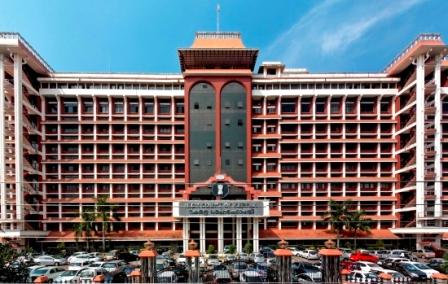LI Network
Published on: 01 October 2023 at 13:35 IST
The Kerala High Court has exercised its parens patriae jurisdiction to select the name for a child who found herself embroiled in a disagreement between her estranged parents regarding her name.
Justice Bechu Kurian Thomas rationalized that attempting to mediate the parental dispute would inevitably cause delays, and during this time, the absence of a name would not serve the child’s best interests or welfare.
“In the exercise of such jurisdiction, where the welfare of the child takes precedence over the rights of the parents, the Court must undertake the task of choosing a name for the child. When selecting a name, the court may consider factors such as the child’s welfare, cultural considerations, parental interests, and societal norms. With the ultimate goal being the child’s well-being, the court must choose a name that takes into account the overall circumstances. Therefore, this Court is compelled to exercise its parens patriae jurisdiction to choose a name for the petitioner’s child,” the Court stated.
The child in question did not have a name on her birth certificate. As the child was about to start her education, school authorities insisted on a name for her and refused to accept the birth certificate, which had no name.
When the petitioner mother attempted to register a name for the child, specifically ‘Punya Nair,‘ the Registrar insisted on the presence of both parents before him to register the name. However, the couple could not reach a consensus on the issue, as the father wanted to name the child ‘Padma Nair.‘
It’s worth noting that the couple’s relationship had soured after the child’s birth. Initially, the petitioner had sought assistance from the Family Court to compel her husband to cooperate in obtaining a birth certificate for the child with the name ‘Punya Nair.’
The Family Court had directed both parents to appear before the Secretary of the Aluva Municipality to process the birth certificate, but this directive was not followed, leaving the child still without a name.
“Undoubtedly, the child must be given a name. Fortunately, the parties are in agreement on this matter. Thus, the issue comes down to what name should be entered on the birth certificate. A name establishes an identity that typically remains with a person for life, unless changed by choice,” the bench noted.
Considering the Registrar’s requirement that both parents apply to register the child’s name, the Court also addressed whether the registration of a name in the birth certificate necessitates an application by both parents or just one of them.
Upon reviewing Section 14 of the Registration of Births and Deaths Act, 1969 (‘Registration of name of child’) and Rule 10 of the Kerala Registration of Births and Deaths Rules, 1999, which pertains to the period of purpose for Section 14 of the Act, Justice Thomas determined that the provisions used the term ‘the parent,’ which could refer to either the father or the mother, or in exceptional cases, both. The Court emphasized that the context in which the term was used would determine its interpretation.
The Court concluded that since the Act and the Rules used the term ‘the parent’ in the singular form and not in the plural, either the father or the mother could register the child’s name.
“In cases where a dispute arises between the parents regarding the child’s name, it is essential for one of them to be entitled to appear before the Registrar of Births and Deaths to provide a name. The statute does not mandate the appearance of both parents when a dispute exists. This interpretation is critical in light of the increasing prevalence of ‘single parents’ and in consideration of the child’s best interests,” the Court stated.
The Court acknowledged that this interpretation might lead to situations where one parent hastily registers their chosen name for the child. However, the Court emphasized that such possibilities should not prompt an interpretation that disregards the terminology used in the statute and rules. It added that if either parent later wishes to correct the name, they can initiate legal proceedings to do so.
Additionally, the Court scrutinized a 2016 Government Circular that allowed corrections to be made based on the application of the parent who has custody of the child after the dissolution of marriage or the abandonment of the child by either parent.
The Court determined that while the Circular was well-intentioned, the power to issue it could not be traced back to the Act or the Rules, except for Section 32 of the Act, which can be used to overcome difficulties in implementing the Act, but only for a maximum of two years.
Consequently, the Court held that the State Government lacked the authority to issue such a Circular.
Considering the facts of the case, the Court determined that the name proposed by the mother, with whom the child currently resided, should be given due consideration. Furthermore, the Court believed that the father’s name should also be included since his paternity was undisputed.
As a result, the Court decided on the name ‘Punya Balagangadharan Nair’ or ‘Punya B. Nair’ for the child.
To resolve the disputes between the parties regarding the child’s name, the child is directed to be named ‘Punya,’ and the father’s name, ‘Balagangadharan,’ should also be added along with ‘Nair.’ Therefore, the daughter of the petitioner, born on 12-02-2020, to the fourth respondent, is hereby named ‘Punya Balagangad.

